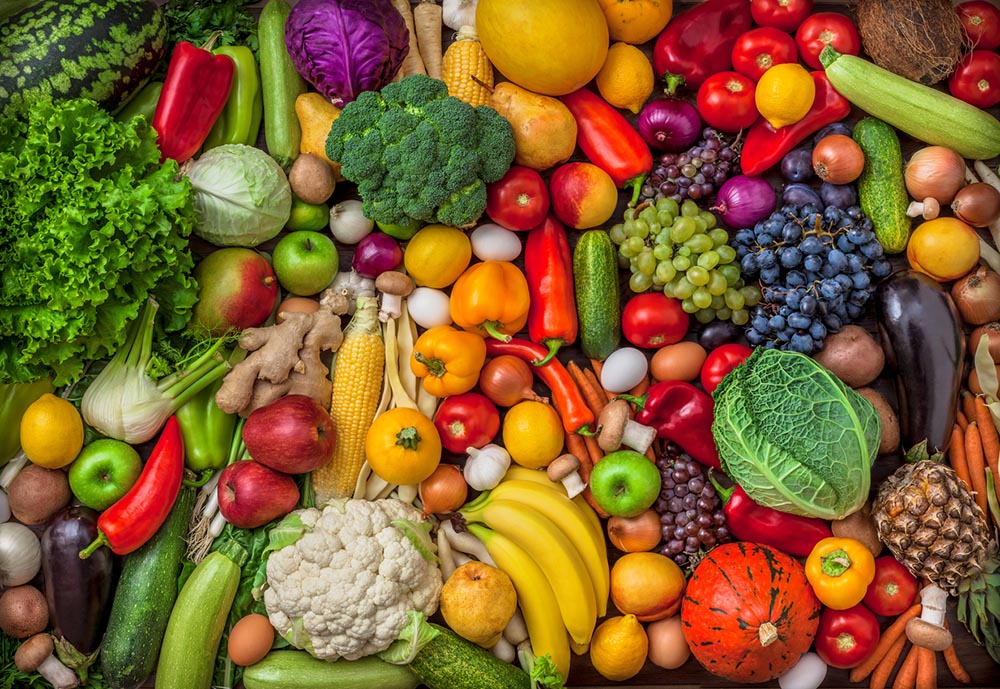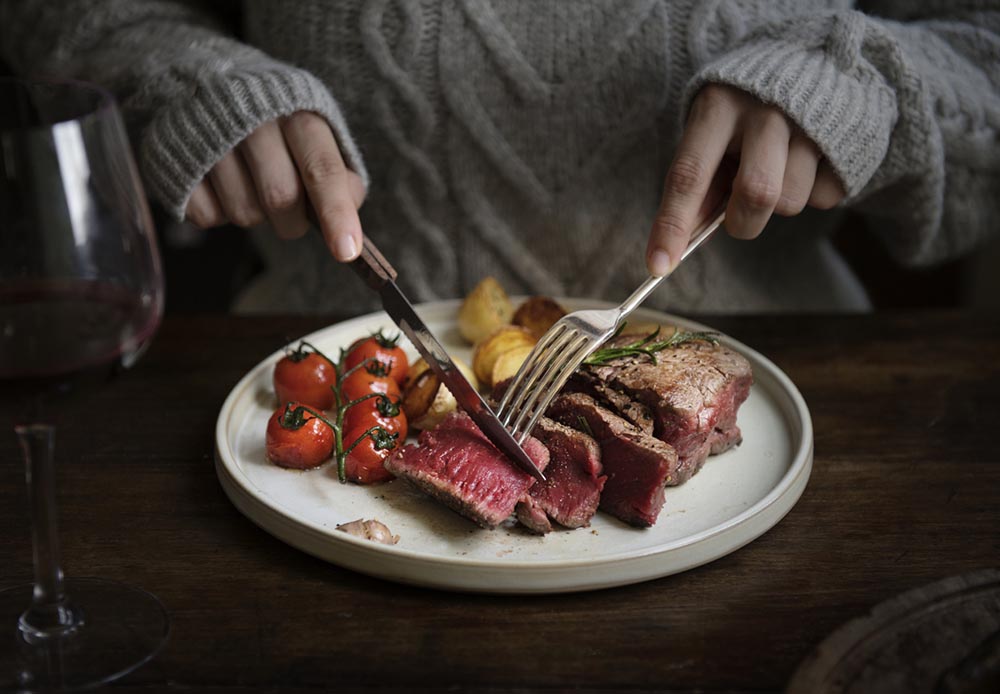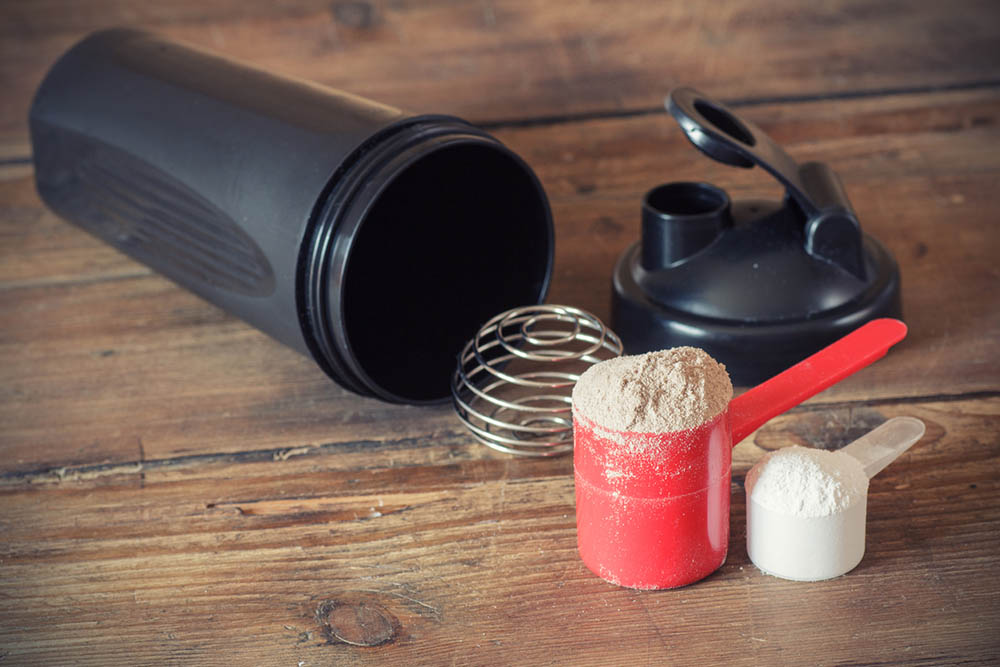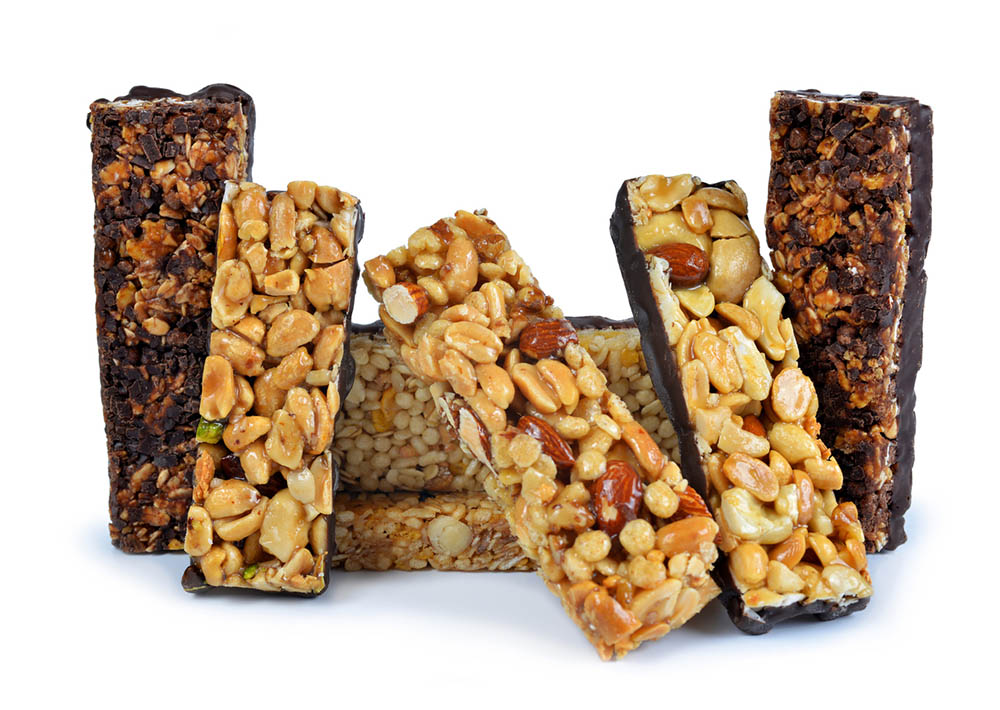‘Too much protein will make you bulky’, ‘you can only get your protein from meat’ – we’ve heard it all, now it’s time to figure out fact from fiction. We asked three top dieticians to reveal whether these ten protein myths are true or false
Protein is still a pretty hot topic, protein powder is everywhere and bodybuilders are still boasting about how much steak and chicken they can eat. Most of us know that protein is good for us but many are still unsure why or how much we need.
We asked three top experts to help us sort fact from fiction.
Rick Hay is a nutritionist with many years clinical experience in nutrition. He specialises in obesity treatment and weight management.
May Simpkin is a UK registered practitioner with a Masters Science degree in Personalised Nutrition. She is an experienced clinician, practicing functional medicine from an evidence base, providing the latest research into nutrition.
Rick Miller is a consultant clinical and sports performance dietitian. As a senior lecturer, Rick covers the full breadth of clinical conditions but specialises in digestive health and gastroenterology conditions, food allergy and intolerance, men’s health and women’s health and paediatrics.
Rick Hay, Healthista’s Nutritional Director, leading Nutritionist May Simpkin and Dietician Rick Miller answered true or false to these nine statements. Let’s get this straight once and for all.
Myth #1: ‘You can’t get all your protein needs from plants’
All three of our experts agreed that this statement is false, ‘you can certainly get all of your protein needs from plants,’ says Hay.
May Simpkin suggests that we can obtain all our protein needs from ‘complete’ proteins such as grains like soybeans and quinoa, these will provide all the essential amino acids your body needs.
‘Complete plant-based proteins such as quinoa, buckwheat and soybeans are often healthier than their animal based counterparts,’ believes Hay.
Miller also agrees that you can get all your protein from plant-based foods, however some sources of plant-based protein lack essential amino acids (the building blocks of proteins).
‘Vegans ideally do need to eat more total protein per day, by eating a range of plant-based protein sources such as lentils, chickpeas, seeds and tofu,’ Miller advises.
Hay agrees, ‘Make sure you are getting a variety of plant-based proteins in general – eat protein rich foods such as hemp, chia seeds, beans, lentils, chickpeas, tempeh, tofu, seeds, nuts and nut butters.
With these ingredients and a varied plant-based protein diet there is no reason why all of your protein needs can’t be reached,’ says Hay.
Of course managing to eat a whole load of grains and vegetables all day, every day may feel a bit heavy going. Miller recommends that some should supplement their diet with a vegan protein powder if they are struggling to consume and incorporate all these foods into their diet.
So, you can get all your protein needs from a plant-based diet, but make sure you’re eating grains as much as you are chomping down the veggies.
Myth #2: ‘I don’t need much protein as I don’t lift weights’
This statement received a big fat FALSE. Weights or no weights any sort of exercise will mean you are likely to need more than the average amount of protein.
‘Exercise, even cardiovascular exercise requires protein to repair tissues around your body, support normal metabolic function, manage satiety (fullness) and support normal blood glucose regulation’ says Miller.
And of course protein isn’t just consumed for exercise sake. Simpkin explains, ‘We need protein for virtually every process that takes place in our bodies. Protein is an important component of every cell in the body and a crucial building block for hair, skin and nails as well as muscle and cartilage.
‘You also need protein to produce enzymes, hormones and neurotransmitters. Protein is an important component of a healthy balanced diet and should not be compromised,’ warns Simpkin.
Protein is integral to our overall health and wellbeing and not just essential for those who ‘lift weights’ at the gym.
Hay offered a similar explanation to Simpkin, in that protein does so much more than build lean muscle mass and can help with weight loss too.
Myth #3: ‘It’s best to eat most of your protein at dinner’
Again this statement is false. Most people tend to eat their largest meal in the evening. So it’s no surprise that these big evening meals consist of mostly protein based foods such as chicken, mince, beans and grains.
Research suggests however, that eating your protein, spread throughout the day is more effective in helping to build lean muscle.
Simpkin explains, ‘The body is only able to use the protein it needs at any one time and it will continue to do so throughout the day, using the amount it needs from each meal and discarding the remaining protein.’
Eating small amounts of protein spread out between each meal is ideal. If you consume too much protein at one time there is the potential for the excess protein to be stored as fat warns Hay.
Surely then this gives us the green light and a perfect excuse to snack? Protein shakes or protein bars such as KIND protein bars are perfect for keeping your protein intake up throughout the day. KIND bars are not only high in protein but low in sugar too – making them the perfect healthy protein snack.
However, this week it was revealed that associate Professor of Nutrition, Food and Exercise Sciences Michael Ormsbee and former FSU graduate student Samantha Leyh found that consuming 30 grams of protein, around 30 minutes before going to bed can have a positive effect on muscle quality, metabolism and overall health.
The study involved young active women in their early 20s who ate samples of cottage cheese 30 to 60 minutes before bed. This indicates that whole foods work just as well as protein supplementation, and it gives people options for presleep nutrition that go beyond powders and shaker bottles, says Ormsbee.
Myth #4: ‘Chicken breast contains more protein than soya beans’
Meat is seen to be higher in protein than most other foods. However, this myth is false.
‘Both chicken and soya beans contain a similar amount of protein per 100g, approximately 30g,’ confirms Miller. According to Hay, ‘Soya beans contain slightly more at 36g per 100g versus 31g per 10g in chicken breast.’
Simpkin agrees, ‘Soy beans are an excellent source of protein and provide more protein per 100g than a chicken breast.
‘It is a common misconception that meat provides more protein than a plant-based alternative,’ says Simpkin. Time to stock up on the soya beans and soya milk.
Myth #5: ‘Powders can substitute whole sources entirely’
Where protein powders and supplementation is concerned, our experts don’t all agree.
According to Miller, ‘High quality protein powders are still food. They will lack some of the vitamins and minerals of a whole food source; but if used sensibly, the occasional smoothie with protein powder may help with meeting protein requirements easier.’
Hay argues that whilst protein powders are convenient, they can often lack vitamins and fibre that whole foods provide.
‘It also depends on the type of protein power, some blends contain more than one source of protein, these I recommend. Protein powder smoothies with some fruit or veg added with nuts and seeds can make a complete meal,’ Hay adds.
Simpkin is certain however, that protein powders alone are not sufficient in providing us with the right amount of protein.
Simpkin explains, ‘Many good quality supplement powders are fortified with an array of nutrients and can provide sufficient macro and micronutrients to satisfy the body’s requirements in the short term. However, a supplement will not provide the sufficient insoluble or soluble fibre the body needs to ensure healthy digestion.
‘Compromised digestive health will lead to ill health and debilitating symptoms. You should always aim to eat a balanced nutrient rich diet mainly from whole foods, with powders used as a supplement rather than a replacement.’
Myth #6: ‘Everyone should eat the same amount’
Not only is everyone physically different, everyone has different health goals too: to lose weight, to gain weight, to gain lean muscle, lose body fat. Therefore this statement is a myth. Each person will need to consume different amounts of protein and for different reasons.
Simpkin explains, ‘The amount of protein we need will differ according to your personal health goals and lifestyle but also factors such as activity levels, age, muscle mass and current health status must all be considered.
‘If you’re exercising regularly, you will have a higher protein requirement than someone who is sedentary and less protein will also be required if you are older for example.’
The amount of protein we need will differ according to your personal health goals and lifestyle
Hay agrees, your protein requirement will depend on your weight, lifestyle and how much exercise you do.
‘In the UK, adults are advised to eat 0.75g of protein for each kilogram they weigh, based on the Reference Nutrient Intake (RNI). So if you weigh 65kg (10 stone), you should eat about 48.75g of protein a day, explains Hay.
‘If you’re trying to lose weight and exercising around three to five times a week, you should up your protein intake to 0.8 or 1 gram per kilo of body weight. Additionally, if you’re super active, training for an hour daily and wanting to build muscle you could increase that to 1.2 to 1.7 grams per kilo of body weight.’
If you’re lightly active, active or super active, consuming extra protein will help to repair your muscles and reach your personal fitness goals, but also provide you with better overall health.
Myth #7: ‘Eating protein makes you bulky’
This is another commonly believed myth, that all three experts say is, you guessed it – false.
Miller explains, ‘Women have a different hormonal profile to men and therefore growing muscle tissue requires a combination of heavy resistance exercise AND eating protein, for a LONG time. Even then, muscle growth is often limited.’
People shouldn’t shy away from consuming protein just because they believe this myth, as mentioned previously, protein is key to our overall health and can help with other serious health conditions, ’Eating protein rich foods will help to strengthen bones, which is major risk factor for osteoporosis,’ explains Miller.
Simpkin also argues that ‘protein is often marketed as a body building nutrient, however protein is not stored in muscle tissue.
‘Consumed protein will not be used to build muscle or size without many dedicated hours of resistance training to achieve results. It is actually very difficult to build muscle and even harder for women due to their hormonal profile,’ says Simpkin.
Myth #8: ‘All protein bars are created equal’
When someone says they’re vegan, you think – healthy diet alert, but even vegans eat junk food. Don’t be fooled when you see ‘high protein bars’ for sale, you may think they’re healthy but some are full of added sugar and high in calories.
Miller advises that you should always read the labels carefully as protein bars vary considerably in ingredients, be careful when adding these to supplement your diet, as you may be doing more harm than good.
Simpkin agrees, ‘The quality of protein bars varies enormously and can contain many hidden ingredients that can take it from a nutritious convenient meal or snack replacement to little more than a tasty candy bar.
‘It’s important to check the nutrition labels for ingredients ensuring that you are not consuming a bar full of preservative, colourings and fillers that are high in sugar, low quality fat and minimal protein.’
Hay also agrees that some protein bars are full of additives, sugar and other nasties that are anything but healthy and could even cause weight gain.
‘Go for those that contain whole food sources of protein without the added sugars, such as KIND protein bars, these are high in protein but low in sugar. When you taste them, you probably won’t believe they’re healthy as they are totally delicious, but they most certainly are,’ says Hay.
Myth #9: ‘You need protein after a workout’
This myth is in fact true and can lose it’s ‘possible myth’ status.
According to Hay, ‘if you want to help build lean muscle mass, tone up and recover fully after a workout, then fuelling the body with quality protein post workout is essential.’
Miller agrees that protein after a workout is important, but says that getting enough protein throughout the day is still the most important factor.
Protein is important in repairing and building muscle following a workout
‘After a workout, you’ve damaged muscle tissues so it’s a sensible time to consume a high quality source of protein and start the recovery process,’ explains Miller.
Simpkin responded with the same views as Miller, ‘Protein is important in repairing and building muscle following a workout and as such providing your body with a good quality protein snack or shake will ensure this process is efficient.
‘However, research suggests that the timing of this snack is not as crucial and can be consumed before or after exercise. As long as you have consumed adequate protein throughout the day, your body will have sufficient building blocks to promote muscle recovery and repair.’
Related Healthista Content:
7 signs you’re not getting enough protein plus EXACTLY how to get more
How these 10 healthy Instagrammers get enough protein – even the vegans
9 protein food facts that will give you a better body
Do you need to add more plant-based protein to your diet?
Like this article? Sign up to our newsletter to get more articles like this delivered straight to your inbox.





























































